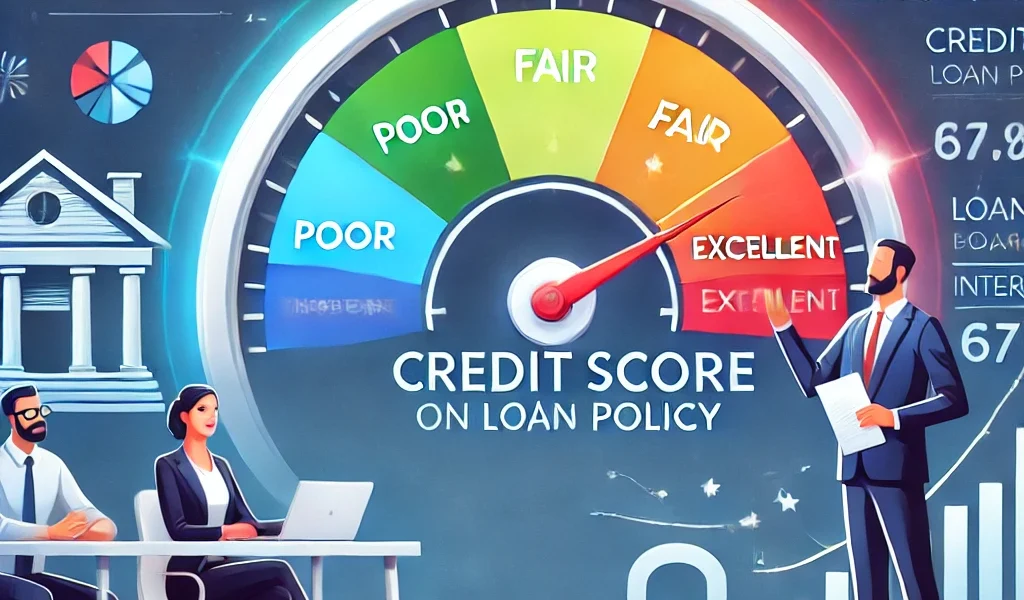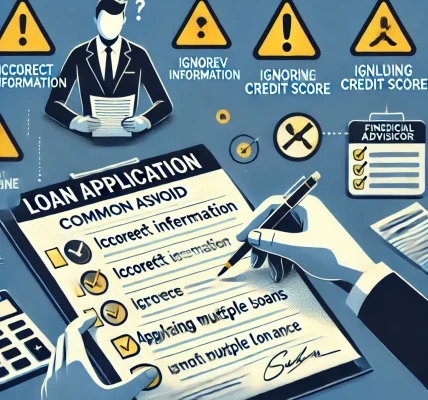A credit score plays a crucial role in determining the terms and conditions of a loan policy. Whether you’re applying for a personal loan, mortgage, auto loan, or business financing, your credit score significantly impacts the loan amount, interest rates, repayment terms, and overall loan approval process. Understanding how your credit score influences loan policies can help you secure better financial opportunities and avoid costly mistakes.
What is a Credit Score?
A credit score is a numerical representation of an individual’s creditworthiness, ranging from 300 to 850 in most scoring models. It is calculated based on an individual’s credit history, outstanding debts, payment patterns, credit utilization, and other financial behaviors. Lenders use this score to assess the risk of lending money to a borrower.
Credit Score Ranges and Their Impact on Loans
| Credit Score Range | Rating | Impact on Loan Terms |
|---|---|---|
| 300 – 579 | Poor | High interest rates, difficulty in approval, stricter conditions |
| 580 – 669 | Fair | Moderate interest rates, limited loan options |
| 670 – 739 | Good | Competitive interest rates, easier approval |
| 740 – 799 | Very Good | Low interest rates, better loan terms |
| 800 – 850 | Excellent | Best interest rates, highest loan approvals |
How Credit Score Affects Loan Policy Terms
1. Interest Rates
Lenders use credit scores to determine the level of risk associated with lending money to an applicant. A higher credit score typically results in lower interest rates, while a lower credit score leads to higher interest rates due to increased lending risk.
- Excellent credit score (800+): Lowest interest rates, saving thousands over the loan term.
- Fair to Poor credit score (below 670): Higher interest rates, increasing the overall cost of borrowing.
2. Loan Approval Chances
Borrowers with higher credit scores are more likely to get approved for loans. On the other hand, individuals with lower credit scores may face rejection or may need to provide additional documentation or a co-signer.
- Good to Excellent Credit (670+): Higher chances of approval.
- Fair Credit (580 – 669): Might qualify, but with stricter conditions.
- Poor Credit (Below 580): Likely to be rejected or required to secure the loan with collateral.
3. Loan Amount Eligibility
Lenders determine the maximum loan amount based on a borrower’s creditworthiness. A higher credit score allows you to qualify for a larger loan, while a lower score may limit your borrowing potential.
- Excellent Credit: Eligible for high loan amounts.
- Low Credit Score: May only qualify for smaller loan amounts.
4. Repayment Terms and Conditions
Credit scores also impact loan repayment terms such as the duration of the loan and additional conditions.
- Higher Credit Score: Longer repayment terms with flexible options.
- Lower Credit Score: Shorter repayment periods with stricter conditions to reduce lender risk.
5. Need for a Co-Signer or Collateral
Applicants with poor credit scores often need a co-signer or collateral to secure a loan. Lenders may require a secured loan backed by assets to minimize their risk.
- Good Credit: No need for a co-signer or collateral.
- Poor Credit: Likely to require a co-signer or collateral.
How to Improve Your Credit Score for Better Loan Terms
Improving your credit score before applying for a loan can help you secure better loan terms and lower interest rates. Here are some actionable steps to enhance your credit score:
1. Pay Bills on Time
- Set up reminders or automatic payments to ensure you never miss a due date.
- Late payments negatively impact your credit score.
2. Reduce Your Credit Utilization Ratio
- Keep your credit utilization below 30% of your available credit limit.
- Pay down high credit card balances regularly.
3. Avoid Multiple Hard Inquiries
- Limit the number of loan applications within a short period.
- Too many inquiries can lower your score.
4. Monitor Your Credit Report
- Regularly check your credit report for errors and dispute inaccuracies.
- Use free credit monitoring services to stay updated on your score.
5. Maintain a Healthy Credit Mix
- Have a mix of credit types, such as credit cards, installment loans, and retail accounts.
- A diverse credit portfolio improves creditworthiness.
6. Keep Old Credit Accounts Open
- Closing old accounts can shorten your credit history and reduce your score.
- Keep older accounts open and active when possible.
Conclusion
Your credit score significantly impacts loan policy terms, from interest rates and approval chances to loan amounts and repayment terms. Maintaining a good credit score not only increases the likelihood of loan approval but also ensures you receive favorable terms, saving you money in the long run. By adopting responsible financial habits and improving your credit score, you can unlock better loan opportunities and secure a financially stable future.




